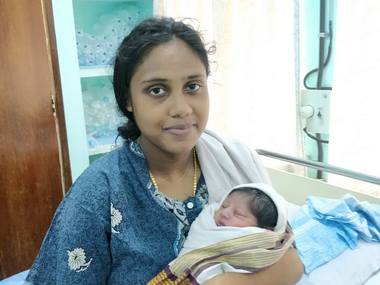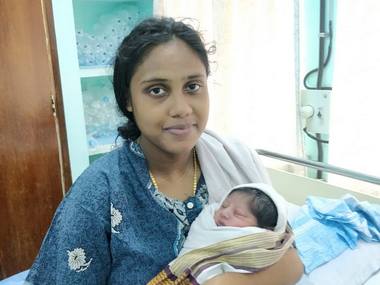As hundreds of people marooned in the floods in Kerala are being rescued in a major joint operation, ensuring proper medical care to those with poor health has become a big concern. Many hospitals — both those run by the government and by the private sector — have themselves been hit by the floods. In the worst affected districts of Ernakulam, Pathanamthitta, Thrissur and Alappuzha, functioning of many hospitals has been severely crippled after flood water entered their premises. Several hospitals evacuated patients and staff, while some others are offering skeletal services after having shifted critical patients to hospitals not hit by the floods. Surgeries and other critical procedures have been cancelled in most of the affected hospitals. About a dozen hospitals in and around Ernakulam have either ceased functioning or are running with limited services, as the water discharged from dams in Idukki into the Periyar river and its tributaries has marooned them. The Aster Medcity, a multi-specialty hospital situated on the banks of backwaters of Kochi, was closed after water from the Periyar entered its premises. A hospital spokesperson told Firstpost that there were several patients on ventilators and in intensive care units when the water flooded the ground floor of the hospital. All these patients have been shifted to a nearby hospital and fresh admissions stopped. “We tried to pump out the water, but fresh water continued to flow in, making the exercise futile. We have called off the operation in the evening, and moved out over 200 patients to different hospitals,” the spokesperson said. [caption id=“attachment_4986531” align=“alignleft” width=“380”]  A woman with her newborn baby in a Kerala hospital. The woman was rescued by the Navy while she was pregnant. Image courtesy: Twitter/indiannavy[/caption] The Muthoot Hospital at Kozenchery in Pathanamthitta district was inundated with flood water from the Pamba river. While most of the patients in the ICU have been shifted to other hospitals, around 200 others have been shifted to Muthoot’s orphanage in the town. Another 200 people, including patients and staff are now being moved out in boats. More than 600 people have been trapped on the fourth and fifth floors of the Sree Narayana Institute of Medical Sciences (SNIMS) at Chalakka close to Ernakulam since Wednesday morning. They include, 100 patients, 150 medical students, faculty, local residents and even those who were involved in rescue operations. The Nirmala Hospital at Muvattupuzha, 40 kilometres from Ernakulam, has also been marooned in the floods. The hospital has not been able to shift patients and staff, as the town is cut off from the rest of the district. More than 200 patients and staff are stranded at the hospital. The PNM Hospital situated on the banks of the Periyar river at Kalady evacuated all patients, including elderly women and critical patients. The Amrita Institute of Medical Sciences (AIMS) and Lisie Hospital in Ernakulam have also been crippled by the flood and the hospital authorities are planning to shift the patients to other hospitals. The flood also derailed the functioning of Aluva Najath Hospital, Vimala Hospital, Kanjoor, Aluva Anwar Hospital and the Believers Medical College at Tiruvalla. Several government-run hospitals in Ernakulam, Thrissur, Pathanamthitta and Alappuzha districts too have been affected by the floods. The taluk hospitals at Aluva and Chalakkudy are the worst-hit. Dr Anil Vasudevan, a senior state government official, said that the ground floor of the hospital at Aluva was flooded due to the surge in the water in Periyar river. He said that the hospital authorities have been asked to manage the crisis by shifting patients to the upper floors or other government hospitals not affected by the flood. “We have instructed district medical officers to manage the situation at their level. They have been asked to divert the patients needing intensive care to nearby government facilities if they cannot be accommodated in a particular hospital. No patient will be denied treatment,” Anil told Firstpost. “The situation is bad in many hospitals. Several doctors and staff have been deployed in the relief camps. The deployment has been done in such a way that it will not affect the normal functioning of the hospitals,” he said. He said that the department was not worried about the medical needs of people evacuated from the affected areas since the relief camps where they will be put up will have all facilities to take care of them. Most relief camps have adequate doctors and essential medicines, he claimed. However, volunteers engaged in providing help to the people in relief camps said that the situation was not as rosy as portrayed by the government officials. Nithin Das, who has been offering services in many relief camps in Ernakulam district, said that most camps have only first aid. “Many people in the camps are senior citizens, who are suffering from multiple diseases. There are also many pregnant women in some camps. The facilities in the relief camps are not adequate to provide them the care they require,” Nithin told Firstpost. He said that people rescued from the floods will have more health issues, since most of them were trapped without drinking water, food and medicines that they normally take for their conditions. Taking care of them will be a big challenge for the state’s health department, he added. Doctors said that the situation was very serious. Dr Arun Oommen from Lakeshore Hospital said that the people who are being rescued will have not only multiple physical ailments but also mental issues. Diabetics may require careful management in hospital conditions, as they will be prone to several health risks such as hypertension, cardiac problems, or even strokes. He said that people who were trapped in difficult conditions outside the comforts of their homes, without proper sleep and food, could also develop several mental complications such as anxiety and depression which may precipitate the underlying diseases. “Many of them may have to be hospitalised and carefully managed for weeks. The facilities in the hospitals now functioning in the flood-hit areas may not be sufficient to take care of them. They will need extra facilities until the hospitals hit by the flood resume operations,” Dr Arun said. He said that most hospitals were functioning now with skeletal staff. Many of the staff members have not been able to come for duty due to the flood. A report in The Times of India said that the staff strength in most of the hospitals in the Kochi city was just between 30 and 35 percent. The report said that the hospital authorities were also concerned about the shortage of liquid oxygen supply and limited diesel stock to run generators during power shutdown. Dr Arun said that the hospitals were running short of oxygen stock as fresh supplies have not been coming due to disruption in the road traffic. The hospitals have been running mostly on generators as the Kerala State Electricity Board (KSEB) has shut down several transmission units due to the severe flood. At present 4,000 transformers, four 110 KV substations, thirteen 33 KV substations and six power-generating centres have been shut down due to the flood. Health activists have described the situation as very alarming and called on the government to come out with a comprehensive action plan to deal with the post-flood situation. They also fear a massive onslaught of water-borne and air-borne diseases as the flooded areas have turned into breeding grounds for mosquitoes and bacteria. Follow live updates on the Kerala floods here
In the districts of Ernakulam, Pathanamthitta, Thrissur and Alappuzha in Kerala, functioning of many hospitals has been severely crippled.
Advertisement
End of Article


)

)
)
)
)
)
)
)
)



